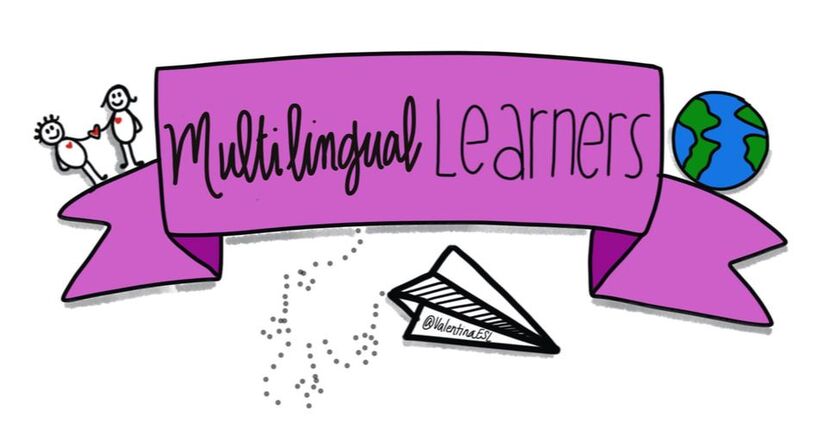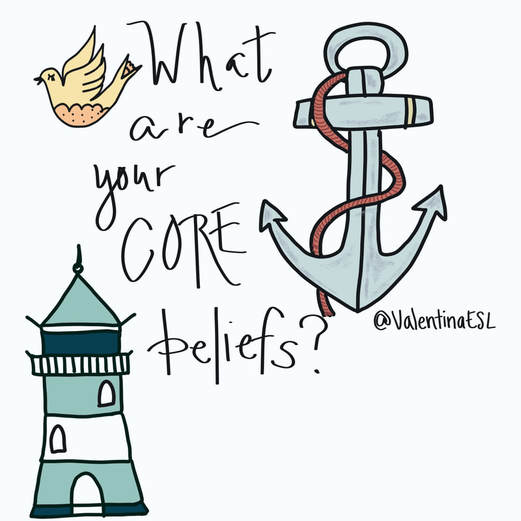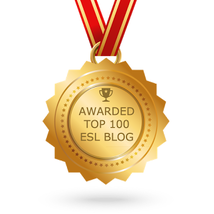|
Core beliefs should anchor what we do. We all have beliefs about life, about learning, about people, about all things. It's important that we reflect and think critically about what are CORE, essential beliefs are about the things that are important to us. Once we identify our CORE beliefs, we can use those to help ensure that we are doing what is right for students. Take a moment before you read on, to think and jot down 3-5 of your CORE beliefs about language or language acquisition. Then I will share mine with you. My CORE beliefs about language are:
1. All language is an asset. If I say that I believe this then I must be able to quantify it in my lesson plans and in my daily instruction and in the work I do on campus. How do I show that all language is an asset? Are all languages valued and appropriated? Do I showcase the many languages of my students around my room? Do I encourage my students to share with us how to say different words in their primary languages? Do my students freely bring books in their home languages to class and share them with us with pride? If I say that all language is an asset, I must hold true to that in my work with students. 2. No 2 language learners are alike. By saying this is a CORE belief, I am saying that I can not give blanket accommodations or modifications to all English learners. My lesson plans should reflect that my language learners are different and have varied needs. My instruction will reflect groups of students at various language levels receiving accommodations based on their individual and unique needs. I will know my students, where they come from, what they know, and where they need to grow. 3. Not all English learners are struggling. If I belief that not all English learners are struggling, then I must belief that many English learners are thriving and some even need more challenging settings. Adding a new language to an existing language does not mean a child needs fixing. If I belief that some English learners need more challenging settings, I must advocate for them. I must be on the look out for these students who are advanced thinkers and learners. If a student is gifted in their native language, they are gifted in any language. Knowing my CORE beliefs is step one. Step two is being sure to reflect those CORE beliefs in my work with students daily. Sometimes that means keeping these CORE beliefs somewhere where I can see them when I'm lesson planning or where I can see them in the morning to keep me accountable. So I'm interested. What are your CORE beliefs? Leave a comment below.
2 Comments
Jafitza Sander
8/14/2019 09:39:22 am
I believe that as an ELL myself, I MUST share with my students how I make connections between both languages. The value of those who speak two languages doubles.
Reply
Susan
12/12/2021 04:52:13 pm
Provide a rigorous curriculum to challenge ELL learners.
Reply
Your comment will be posted after it is approved.
Leave a Reply. |
Categories
All
|


 RSS Feed
RSS Feed
